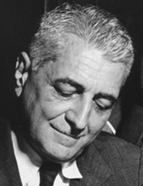

As to Portugal, this country occupied a special place in the life and work of Gilberto Freyre and vice-versa. As mentioned earlier, the relationship between the writer and Portugal that began at the time of his first visit to Europe in the 1920s became even closer during his "adventure of exile" in 1930 as those days were tough: even though in the preface to Casa-grande & senzala, Freyre says he took advantage of being in Lisbon to become familiar "with the National Library, with the collections in the Ethnological Museum, with novel vintages of port, and with new varieties of codfish and sweetmeats" as well as going "to Cintra and to the Estorils" and "greeting distinguished acquaintances" like Jo„o Lķcio de Azevedo, decades later he would write that at that time, "almost without any money at all, I began to live the most wretched of all the lives I have ever lived" ("Como e porque escrevi...", p. 710). What saved him was an invitation from Stanford University (USA) where he went in 1931 as a visiting professor to run courses about Brazil for a year. This was an opportunity that enabled him to define the project for his future book - "a book that was a new reconstitution, a new introspection and a new interpretation of a developed society of European origin with extra-European elements of ethnicity and culture in a tropical space; one based on a patriarchal and slavocratic organization of the economy, the family, co-existence" (idem, p. 711-712).
This is therefore a book that, while talking about the formation of Brazilian society, also says a great deal about the history of Portugal and in particular about the Portuguese people's "aptitude for tropical life" and "tendency for social plasticity", as demonstrated first in the peninsula itself with Muslims and Jews and afterwards in India, Africa and ultimately America, thereby echoing the historiography of Herculano, Oliveira Martins and Teůfilo Braga (the first two often quoted in his works). At the end of the decade, this idea began to take a new shape: in the preface to O mundo que o portuguÍs criou [The World the Portuguese Created]( a very suggestive title in itself) written in 1940, Freyre says that his analysis takes the view of the "unity of feeling and culture formed by Portugal and the various areas of Portuguese colonization in America, Africa, Asia and the islands" since the "constant interpenetration of diverse cultural values" and the "abundant miscegenation" is what lends "richness, strength and the capacity for expansion not only to the whole Luso-Brazilian nation but also to all those national and regional cultures influenced by Portuguese culture and of which Brazil is today the most important expression".
